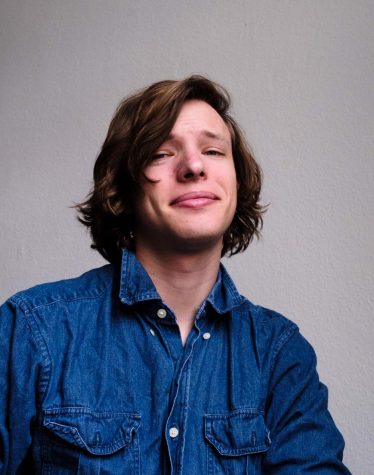Winona LaDuke to speak on environmentalism
October 31, 2019
Indigenous and environmental activist Winona LaDuke will speak in Kagin Commons on Thursday, Nov. 7.
LaDuke, who was the Green Party nominee for vice president in 1996 and 2000, works both domestically and internationally on issues of climate justice, renewable energy, climate change and these issues’ intersections with indigenous communities.
She is also the executive director of the Minnesota-based indigenous environmental advocacy group Honor the Earth. She last spoke at Macalester in 2017.
LaDuke’s address is set to contribute to the wealth of activism opposing the construction of Enbridge’s proposed Line 3 pipeline, which is set to be the most expensive pipeline project in the company’s history.
Activists opposing the pipeline have voiced concerns about potential spillage and its broader environmental impacts, as well as its planned path through indigenous reservations and lands on which Ojibwe people maintain the right to gather resources to sustain themselves.
LaDuke lives and works on the White Earth Reservation in northwestern Minnesota, which Line 3 is set to cross. Honor the Earth has played a significant role in anti-pipeline protests, as well as on a host of other indigenous and environmental issues.
LaDuke also founded the White Earth Land Reservation Project, whose mission is to preserve practices of land stewardship, language fluency, community development and strengthening spiritual and cultural heritage. As one of the United States’ largest reservation-based non-profits, it engages is local and national sustainability by perserving native plants and heritage foods.
The Lectures Coordination Board (LCB) was aware of the pertinence of this activism when it decided to invite LaDuke to the college last semester.
After engaging with the student body and finding widespread interest in the topic of sustainability, they decided that it would be important to feature a local voice involved in the environmental activism happening in Minnesota.
“Part of the sustainability conversation that the students had was along the lines of [wanting] someone to talk about sustainable justice. But we don’t want a white dude to come in here and be like, ‘As a philanthropic blah, blah, blah,’” Logan Schrader, Coordinator of Student Programming and Engagement and LCB’s administration advisor, said.
This year, LCB aimed to center student preferences in its programming.
“At the end of the day, student government has built this committee in response to a student need: to have student voices heard,” Schrader said.
“It’s based on student interest and so if there isn’t student interest in lectures there’s not a huge, robust committee.”
LCB is smaller this year than in years past, and Schrader is currently responsible for a majority of the event planning as he brings new members up to speed. LCB’s reduced size may limit how much it can actively seek student voices to plan events.
“There’s two humans, and so whatever those two humans can accomplish is a scaled back version,” Schrader said.
“Maybe that’s Instagram polling, maybe it’s a Mac Daily question… I use our OSLE [Office of Student Leadership and Engagement] social media to poll people.”
Schrader tries to be a supportive influence and knows to retain from influencing students’ decisions.
“Even though students maybe don’t see administrators as key players in the decision process, we shouldn’t be and we should also be guiding and being that amplification piece,” he said.
“I just steer the ship.”
As a member of the OSLE, Schrader takes his job with LCB seriously.
“At the end of the day, my job — my whole job — is advocating for what students want and need,” Schrader said. “[The LCB wanted someone who could say sustainability] is tied directly to how I live and how I work and how I breathe… and a lot of the work Winona does is just that.”
Tickets for LaDuke’s talk are available at the info desk in the Campus Center.














Mary Ackerman ‘70 • Nov 2, 2019 at 6:07 pm
I’ve worked w Winona for 6 years on the Sandpiper Line and Line 3. As
Interveners in the pipeline routes we know how important this issue is….for indigenous people, clean water, sustainability of energy and agriculture. You will learn a lot….and be engaged with a pretty fabulous woman.